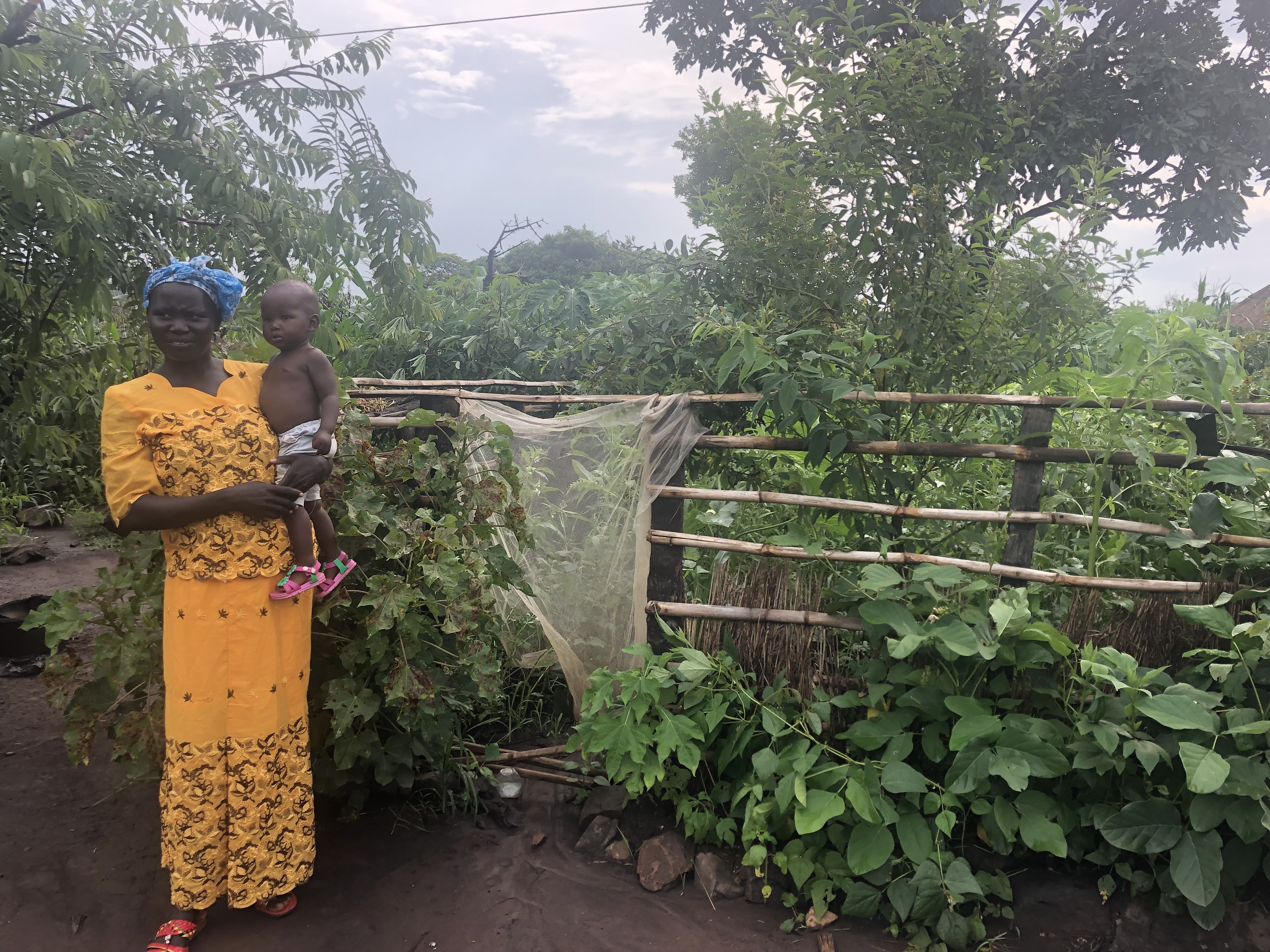The Humans of World Humanitarian Day
Program to Develop Farming in Refugee Camps Depends on a Dedicated Staff

Agnes had to leave her home in the middle of the night when her village in South Sudan was attacked. Two neighbors were killed, and she ran, pregnant, with her husband and young child. Today she is living in Palabek Refugee Settlement Camp in Northern Uganda together with 38,000 other refugees from her home country. Her family has since expanded with the birth of the new baby, and she is also taking care of two orphans who arrived at the camp unattended.
Life in the refugee camp is not easy. The scarcity of food and the hunger her family experiences are of serious concern. The monthly distribution of food aid rations — cooking oil, maize, beans, flour, and salt — from the United Nations World Food Program are often not enough to cover the needs of her family. Many households experience up to a week each month when the rations run out and they don’t have enough to eat. In fact, the settlement in Palabek, one of 12 such camps catering for close to a million South Sudanese refugees, has the highest prevalence of acute malnutrition of all the camps across Northern Uganda — 12 percent. Anemia amongst children age 6-59 months is at 46 percent.
Unfortunately Agnes’ situation is not unique. There are a record number of refugees and displaced people in the world today. Serving many of their needs are humanitarian aid workers, including our skilled team at African Women Rising. We hear news reports about visiting doctors, dignitaries coming in for short visits, but rarely do we hear stories about the humanitarian aid workers on the ground who are providing the daily support in what are often difficult and sometimes dangerous situations. Most are local staff — nurses, teachers, camp administrators, distributors of food, community mobilizers — and many are women. This Monday, August 19, as we observe World Humanitarian Day, we are celebrating the unsung humanitarian heroes who work at the frontlines of their communities.
Grace is one of those women. She is a refugee herself and fled South Sudan with her children. For the last year she has been working as a community mobilizer in Palabek with African Women Rising, helping other refugees grow food to increase food security and provide a more balanced diet to complement the food rations they receive. Her days are long, and she has to balance the demands of work with the reality of being a refugee herself, depending on food rations and living in a small hut with no running water or electricity. But her skills and experience make her invaluable to the work that needs to get done. She, more than most, realizes what people have gone through before they end up in this camp. She also understands the difficulty of living as a refugee, which is often a matter of waiting in line for hours at a time — the line for collecting water, for food distributions, a visit to the clinic.

Utilizing skills she expanded on with help from African Women Rising, Grace has been working together with Agnes for the last number of months to build and maintain a permagarden to increase their access to nutritious food. In the words of Agnes, “Life is hard here in the camp, but it is better, we are safe and have food and cooking oil. Grace helped me start a permagarden, it provides us with fresh food, vegetables. I can even sell some to earn money.”
Grace is part of a dedicated global cadre of women humanitarian workers who are on the front lines of helping others. There are women in Uganda (where our work is focused), Syria, Yemen, Central African Republic, and many other places who are risking their lives to care for those less fortunate. They all deserve our recognition, appreciation and support, not just today but every day. As the executive director of African Women Rising, it has been my privilege to see humanitarian aid workers rise from their own profoundly difficult circumstances to help their fellow humans. Together, we can all make a difference.
Founded in 2006 and based in Santa Barbara and Uganda, African Women Rising empowers women after war, providing self-sustaining solutions that give hope and change lives. African Women Rising reaches 90,000 women, children, and refugees through our agriculture, literacy, education, and micro-finance programs.




You must be logged in to post a comment.